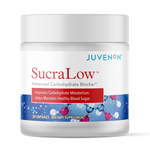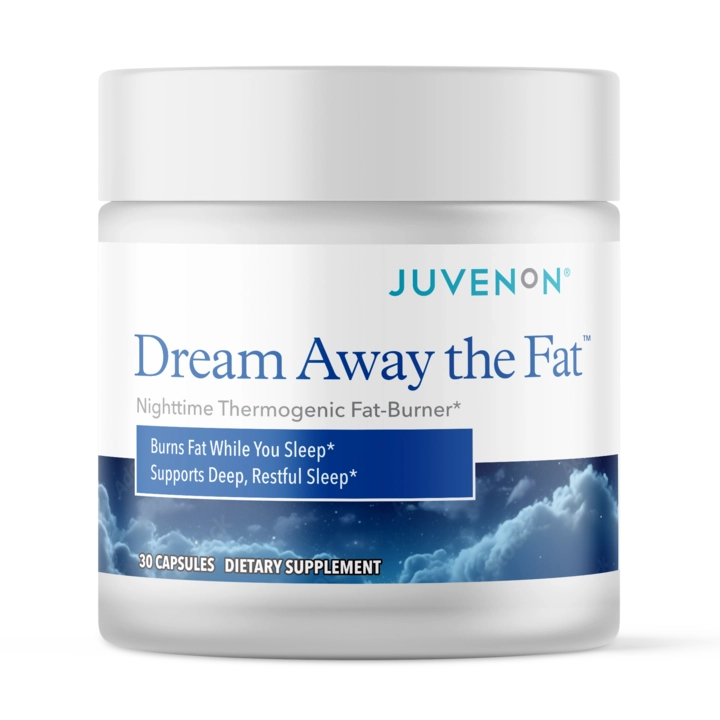 As you age, your heart function naturally diminishes. Emerging research suggests that this could be due to changes in mitochondrial function. Therefore, improving mitochondrial function may help to keep your heart stronger, even as you age.
As you age, your heart function naturally diminishes. Emerging research suggests that this could be due to changes in mitochondrial function. Therefore, improving mitochondrial function may help to keep your heart stronger, even as you age.
The mitochondria, or the “powerhouses of the cell,” as you may have learned in school, are specialized organelles found in every cell of your body. Their role is to transform the energy from the food you eat into a form that your body can use.
Mitochondrial health is a key player in overall health, and it’s thought that nearly every condition may be rooted in some kind of mitochondrial dysfunction—including the natural weakening of the heart as you age. We discuss the important role of cellular health in this article.
In this article, you will learn:
- How the heart changes as you age,
- The role of cellular and mitochondrial health in heart function,
- How the mitochondria-boosting ingredients l-carnitine, alpha-lipoic acid, and biotin may help your heart beat stronger,
- And how a supplement may support a strong heart.
Cellular Health for a Strong and Healthy Heart
Like all organs in the body, the heart tends to weaken as you age—even if you’re otherwise healthy.
This happens because the cardiomyocytes, the heart muscle cells, aren’t able to function as efficiently as they once could. This weakens the heart. (1)
If you have other cardiovascular risk factors—like high blood pressure, type 2 diabetes, or a high BMI—then aging may magnify these risk factors or cause an even more rapid decline.
The aging process that wears down the heart muscle cells also does the same to the endothelial cells. These are the cells that compose the lining of your blood vessels. They play a vital role in the regulation of blood pressure and in promoting healthy circulation.
Healthy endothelial cells keep your blood vessels wide and flexible, while the aging process may contribute to making them stiffer and more closed off. This can lead to or worsen high blood pressure, which is a cardiovascular risk factor. (2)
But what causes heart and vascular aging to begin with? Researchers believe that the answer lies with the mitochondria.
The role of mitochondrial health
The mitochondria provide the power for every single cell in the body in the form of a molecule called adenosine triphosphate (ATP). ATP is the end result of several biological processes that transform energy from the food you eat into energy that your body can use, and properly functioning mitochondria are a vital part of this transformation.
As you can imagine, the heart needs massive quantities of ATP to fuel its life-sustaining roles of pumping blood and oxygen throughout the body. For this reason, heart cells are loaded with mitochondria.
There’s a large and growing body of evidence to support the notion that aging begins with mitochondrial dysfunction, especially in the heart.
Some ways that mitochondrial dysfunction may affect the heart muscle include: (1, 3, 4)
- Reduced ATP production
- Damage to structural proteins and DNA
- Increased susceptibility to stress-related damage
- Increased production of reactive oxygen species, which can harm heart cells
- Apoptosis (death) of heart cells
- Reduced number of mitochondria in the cells
Combined, these actions serve to age the heart.
However, there are some nutrients and other compounds that may help to boost mitochondrial function, potentially reducing some of this damage and promoting a stronger heart.
Mitochondria-boosting ingredients
Some compounds may exert powerful effects to support mitochondrial health, a strong heart, and a healthy blood pressure level. These include l-carnitine and alpha-lipoic acid, along with the vital nutrient biotin—all ingredients in Juvenon’s Cellular Health supplement.
L-carnitine
Carnitine is a compound that’s derived from an amino acid, or a building block of protein. The body is able to produce enough carnitine on its own, so it’s only considered an essential nutrient in rare cases—such as in preterm infants. (5)
However, while it’s not essential, it plays several important roles in supporting the heart, the arteries, and the circulatory system as a whole.
L-carnitine’s role in mitochondrial health and energy production is massive. This compound helps fats (that are broken down from the food you eat) to enter the mitochondria, so that they can be transformed into usable ATP. Animal studies show that l-carnitine supplementation may also help to preserve the integrity and structure of the heart muscle under stress. (6)
Because of its role in fat metabolism, l-carnitine supplementation may also help to improve blood fat levels such as cholesterol and triglycerides. Elevated cholesterol and triglycerides are cardiovascular risk factors, so in this way l-carnitine may help to strengthen the heart. (7)
However, there is some controversy about l-carnitine that you should be aware of prior to supplementing with it.
L-carnitine and heart disease
You may have heard before that taking l-carnitine may actually contribute to the development of heart disease because it can break down into a compound called trimethylamine-N-oxide (TMAO). TMAO is produced by your gut bacteria from the amino acids carnitine, choline, and betaine—which are primarily found in animal foods. (8)
However, this heart disease link doesn’t appear to be strongly supported by scientific evidence. TMAO levels tend to be higher in people who eat meat, so—despite a lack of strong and compelling evidence—this argument is often used by vegan activists as a reason that people should avoid consumption of animal products.
Although some weak associations have been found between TMAO levels and an increased risk of heart disease, some animal studies have found that a higher TMAO intake and higher blood TMAO levels are associated with improved heart function. (9)
The science is rapidly evolving, but L-carnitine appears to be a safe supplement that supports a strong heart despite the TMAO controversy. Additionally, while a vegan diet can be a perfectly healthy and sustainable approach for many, it isn’t the only healthy diet and it’s not the only way to support a strong heart and improved circulation. For five more ways to strengthen your heart with science that’s tried and true, check out this article.
Alpha-lipoic acid
Alpha-lipoic acid may also help to promote mitochondrial health and a strong heart. Alpha-lipoic acid is an antioxidant compound that is produced naturally by the body to use during the metabolic process of transforming food into usable energy. Therefore, it’s vital for proper mitochondrial functioning. As an antioxidant, it can also help to reduce the cellular damage caused by reactive oxygen species, which may build up in the cells when mitochondria are dysfunctional. (10, 11)
Alpha-lipoic acid may also provide some cardiovascular benefits by helping to reduce blood pressure and promoting vascular health and proper epithelial cell functioning. This increased arterial flexibility is key in supporting the heart and cardiovascular system.
Animal studies have shown promise from alpha-lipoic acid supplementation to support aging hearts. In one study, a supplement containing a complex made with lipoic acid helped to improve mitochondrial function and reduce oxidative damage in the hearts of aged mice. Another study found that alpha-lipoic supplementation may help to slow down the development of cardiac dysfunction in mice with type 2 diabetes. (12, 13)
Biotin

Biotin is a key nutrient that helps the body to better harness energy from the foods we eat. Although most people associate it with hair, skin, and nail health because it’s commonly found in beauty supplements, it also has an important role in heart and mitochondrial health. (14)
In test-tube studies, biotin has been shown to reduce oxidative stress, promote improved mitochondrial function, and reduce cell death. (15)
Biotin deficiency, on the other hand, is linked to mitochondrial dysfunction, the accumulation of damage-causing reactive oxygen species, and an increased risk of metabolic disorders. (16)
Biotin is also closely linked to alpha-lipoic acid, as they function similarly. Unfortunately, this sometimes means that alpha-lipoic acid can compete with biotin for receptors and increase your risk of becoming biotin deficient. For this reason, biotin should be supplemented while you are taking alpha-lipoic acid to ensure that your biotin needs are being met. (17)
Biotin is mostly found in animal foods, although some nuts, seeds, and vegetables are fair sources of the vitamin. Adults need at least 30 micrograms of biotin daily to promote overall health and proper cellular functioning. (14)
How Juvenon Cellular Health can support a strong heart
Juvenon’s Cellular Health supplement is a unique, mitochondria-supportive formulation that contains all three of the ingredients listed above.
In addition to powerful alpha-lipoic acid and l-carnitine, this supplement may help to fill nutrient gaps in your diet to ensure that your biotin needs are met and to prevent the biotin deficiency that may sometimes occur with alpha-lipoic acid supplementation.
Additionally, one 2007 study in the Journal of Clinical Hypertension found some positive effects of Juvenon’s Cellular Health supplement on both blood pressure and vascular health, which could help support your aging heart. (18)
This study, done in 36 patients who were over the age of 55, found that supplementing with Juvenon Cellular Health for 8 weeks was associated with improvements in blood pressure and brachial artery diameter, a measure of vascular health. These findings suggest that promoting mitochondrial function may help support your heart. (18)
Summary
Aging—including the aging process of the heart and blood vessels—is a natural and inevitable process, but mitochondrial dysfunction may speed it up.
The mitochondria are the “power plants” of each cell that transform the raw materials from food into ATP, a form of energy that the body can use. With poorly functioning mitochondria, heart function may suffer.
Biotin is a key nutrient that plays roles in energy metabolism and mitochondrial health. Additionally, l-carnitine and alpha-lipoic acid are non-nutrient compounds that power the mitochondria and can help strengthen aging hearts.
Juvenon Cellular Health contains all three of these powerful ingredients and has been clinically studied for its potential to help reduce blood pressure and widen the arteries—promoting a strong heart and improved arterial health.
References:
- Hoppel CL, Lesnefsky EJ, Chen Q, Tandler B. Mitochondrial Dysfunction in Cardiovascular Aging. Adv Exp Med Biol. 2017;982:451-464. doi:10.1007/978-3-319-55330-6_24
- Jia G, Aroor AR, Jia C, Sowers JR. Endothelial cell senescence in aging-related vascular dysfunction. Biochim Biophys Acta Mol Basis Dis. 2019;1865(7):1802-1809. doi:10.1016/j.bbadis.2018.08.008
- Martín-Fernández B, Gredilla R. Mitochondria and oxidative stress in heart aging. Age (Dordr). 2016;38(4):225-238. doi:10.1007/s11357-016-9933-y
- Lesnefsky EJ, Chen Q, Hoppel CL. Mitochondrial Metabolism in Aging Heart. Circ Res. 2016;118(10):1593-1611. doi:10.1161/CIRCRESAHA.116.307505
- National Institutes of Health. (2017). Carnitine—Health Professionals Fact Sheet [Fact sheet]. Retrieved from https://ods.od.nih.gov/factsheets/Carnitine-HealthProfessional/
- Mustafa HN, Hegazy GA, Awdan SAE, AbdelBaset M. Protective role of CoQ10 or L-carnitine on the integrity of the myocardium in doxorubicin induced toxicity. Tissue Cell. 2017;49(3):410-426. doi:10.1016/j.tice.2017.03.007
- Askarpour M, Hadi A, Symonds ME, et al. Efficacy of l-carnitine supplementation for management of blood lipids: A systematic review and dose-response meta-analysis of randomized controlled trials [published correction appears in Nutr Metab Cardiovasc Dis. 2020 Jan 6;:]. Nutr Metab Cardiovasc Dis. 2019;29(11):1151-1167. doi:10.1016/j.numecd.2019.07.012
- Moreira da Silva Guimarães S, de Souza Cruz WM, de Souza Weigert G, et al. Decompensated Chronic Heart Failure Reduces Plasma L-carnitine. Arch Med Res. 2018;49(4):278-281. doi:10.1016/j.arcmed.2018.09.004
- Song X, Qu H, Yang Z, Rong J, Cai W, Zhou H. Efficacy and Safety of L-Carnitine Treatment for Chronic Heart Failure: A Meta-Analysis of Randomized Controlled Trials. Biomed Res Int. 2017;2017:6274854. doi:10.1155/2017/6274854
- Solmonson A, DeBerardinis RJ. Lipoic acid metabolism and mitochondrial redox regulation. J Biol Chem. 2018;293(20):7522-7530. doi:10.1074/jbc.TM117.000259
- Hiller S, DeKroon R, Hamlett ED, et al. Alpha-lipoic acid supplementation protects enzymes from damage by nitrosative and oxidative stress. Biochim Biophys Acta. 2016;1860(1 Pt A):36-45. doi:10.1016/j.bbagen.2015.09.001
- Sridharan V, Seawright JW, Antonawich FJ, et al. Late Administration of a Palladium Lipoic Acid Complex (POLY-MVA) Modifies Cardiac Mitochondria but Not Functional or Structural Manifestations of Radiation-Induced Heart Disease in a Rat Model. Radiat Res. 2017;187(3):361-366. doi:10.1667/RR14643.1
- Li CJ, Zhang QM, Li MZ, Zhang JY, Yu P, Yu DM. Attenuation of myocardial apoptosis by alpha-lipoic acid through suppression of mitochondrial oxidative stress to reduce diabetic cardiomyopathy. Chin Med J (Engl). 2009;122(21):2580-2586.
- National Institutes of Health. (2020). Biotin—Health Professionals Fact Sheet [Fact sheet]. Retrieved from https://ods.od.nih.gov/factsheets/Biotin-HealthProfessional/
- Sghaier R, Zarrouk A, Nury T, et al. Biotin attenuation of oxidative stress, mitochondrial dysfunction, lipid metabolism alteration and 7β-hydroxycholesterol-induced cell death in 158N murine oligodendrocytes [published correction appears in Free Radic Res. 2019;53(sup1):I]. Free Radic Res. 2019;53(5):535-561. doi:10.1080/10715762.2019.1612891
- Madsen CT, Sylvestersen KB, Young C, et al. Biotin starvation causes mitochondrial protein hyperacetylation and partial rescue by the SIRT3-like deacetylase Hst4p. Nat Commun. 2015;6:7726. Published 2015 Jul 9. doi:10.1038/ncomms8726
- Cronan JE. Biotin and Lipoic Acid: Synthesis, Attachment, and Regulation. EcoSal Plus. 2014;6(1):10.1128/ecosalplus.ESP-0001-2012. doi:10.1128/ecosalplus.ESP-0001-2012
- McMackin CJ, Widlansky ME, Hamburg NM, et al. Effect of combined treatment with alpha-Lipoic acid and acetyl-L-carnitine on vascular function and blood pressure in patients with coronary artery disease. J Clin Hypertens (Greenwich). 2007;9(4):249-255. doi:10.1111/j.1524-6175.2007.06052.x























